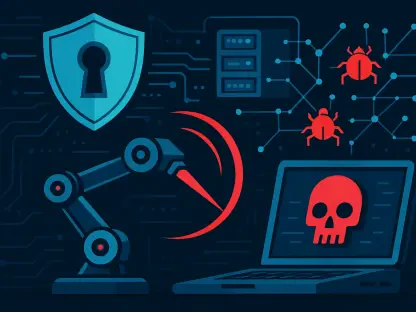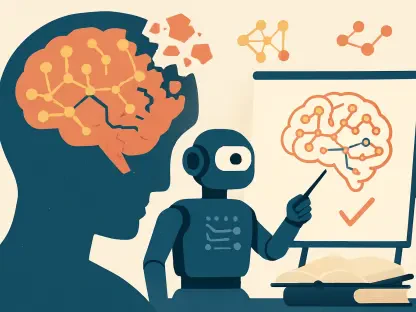Chloe Maraina is renowned for her expertise in data management and business intelligence. Her passion for translating big data into captivating visual stories sets her apart in the field. Chloe’s experience in data science and her forward-thinking approach to data integration allow her to offer unique insights and vision. In this interview, she shares her journey, the importance of social justice in data, and her views on data leadership.
Can you tell us about your current role as a senior strategic consultant at Vantage Technology Consulting Group? What are your main responsibilities?
As a senior strategic consultant, I collaborate with higher education clients to enhance their IT strategies and operations. My main responsibilities include focusing on analytics, data governance, and change management. I support institutions in leveraging their data as a vital asset and emphasize responsible governance. My role is about combining strategic oversight with practical implementation to drive educational excellence through technology.
What led you to pursue a Master of Public Health at Emory University? How has this degree influenced your career path in data?
My journey into public health was fueled by a desire to explore logic and structure within the scope of social and environmental justice. The program at Emory University helped me develop critical skills in research and data analysis, which have been foundational throughout my career. The analytical mindset and commitment to justice I refined during my MPH have consistently inspired my work across various sectors.
You mentioned working across various sectors like non-profits, higher education, federal government, and academic research. What are some common challenges and opportunities for data professionals in these industries?
One challenge across these sectors is aligning diverse stakeholder expectations with rigorous data practices. However, this also presents the opportunity to create integrated solutions that enhance decision-making. Data professionals in these settings can drive innovation by leveraging data to solve complex problems and create meaningful change, balancing potential conflicts with strategic alignment.
How has working in data been shaped by your background in public health research and data analysis?
My public health background instilled a focus on using data ethically and responsibly, always considering its social implications. This perspective has been crucial, enabling me to apply a justice-oriented lens to my data projects. Whether in academic research or IT strategy, I strive to ensure data is used not just effectively, but justly, to contribute to societal well-being.
What does it mean to focus on data through a social and environmental justice lens, and how do you apply this perspective in your work?
Focusing on data through a social and environmental justice lens means prioritizing fairness, inclusivity, and responsibility in data usage. It requires evaluating who benefits from data initiatives and who might be marginalized. I implement this by advocating for diverse representation in data projects and ensuring governance structures support equitable outcomes.
You faced challenges as a neurodivergent woman in professional settings. Can you share how these experiences impacted your early career?
Navigating professional environments as a neurodivergent individual posed significant challenges, particularly in a setting with rigid communication norms. Early on, I found myself adapting my communication style, often at the expense of personal energy. These experiences taught me to value authenticity, embrace my strengths, and push for work environments that welcome diverse ways of thinking and interaction.
How have you learned to embrace your strengths and advocate for diverse ways of working in your professional life?
I’ve learned to embrace my innate strengths by seeking out and cultivating spaces that value diversity. Understanding that leadership isn’t confined to a title, I’ve focused on shaping my environments by advocating for inclusive practices. This involves promoting diverse thought, challenging norms, and contributing to a culture that values various working styles and perspectives.
What advice would you offer to women aspiring to become leaders in the data field?
I would advise aspiring female data leaders to be bold in exploring every aspect of data that excites them. They should aim to understand the power of data beyond traditional metrics and be purposeful in creating impact. Leadership is about influence and positive change, not just the title; it’s about finding one’s unique path and being confident in shaping data narratives that matter.
What does leadership in data mean to you, and how can one make positive change without necessarily holding traditional leadership titles?
Leadership in data means advocating for responsible use and management, ensuring data serves positive societal goals. It’s about driving change through influence and understanding data’s ethical implications. Even without a traditional leadership title, one can steer thought and practice by championing innovations and strategies that benefit both the organization and the broader community.
How do you encourage higher education institutions to govern and manage data responsibly?
I encourage institutions to recognize data as a strategic asset and market it as such. By embedding responsible data practices in their strategic planning, I help them develop policies and frameworks that emphasize data ethics. I advocate for continuous learning and adaptation to promote a culture of data responsibility and integrity within education.
When you consider the future of women in data, what changes do you anticipate or hope to see in the field?
I anticipate and hope for increased representation of women and other underrepresented groups in data leadership. As we expand dialogues on responsible data use and AI ethics, the inclusion of diverse voices becomes crucial for holistic decision-making. These perspectives will inspire innovation and ensure that data policies are equitable and inclusive, advancing the field substantially.
Could you share your thoughts on the importance of diverse perspectives in data leadership?
Diverse perspectives in data leadership enrich the field by bringing varied cultural, intellectual, and experiential insights that can significantly enhance problem-solving and innovation. Diversity nurtures creativity and adaptability while ensuring that data initiatives don’t inadvertently exclude or harm underrepresented groups. These perspectives are integral to crafting data solutions that are truly comprehensive and equitable.
You’re excited about conversations around responsible data governance and AI ethics. Why are these topics particularly important right now?
In this age of rapid technological advancement, responsible data governance and AI ethics are crucial because they ensure technology serves humanity positively without exacerbating inequalities. Given the potential for AI misuse or bias, having robust ethical frameworks is vital. These conversations are essential to safeguard privacy, enhance accountability, and promote fairness in technological applications.
What role have women leaders played in your career, and how do you intend to inspire others in return?
Women leaders have profoundly influenced my career, offering guidance, inspiration, and new perspectives that have shaped my professional journey. They’ve shown me the importance of resilience and the power of collaboration. In return, I aim to inspire others by mentoring, amplifying women’s achievements in data, and advocating for equitable opportunities in all my endeavors.









